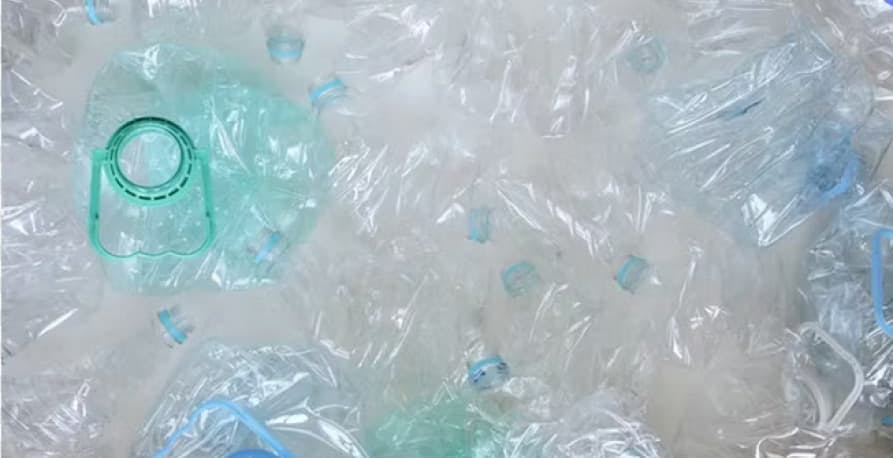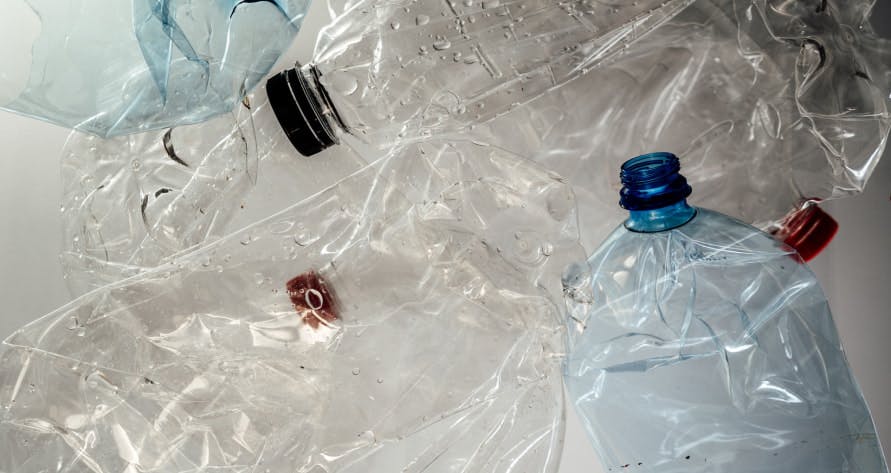
What are the 3 Pillars of Corporate Sustainability?
In this article, we'll explore what the 3 pillars of corporate responsibility are, why they're important, and how businesses can turn them into practical action.
ESG / CSR
Industries



We've heard for ages on the importance of recycling, but it's never been more difficult to do so than it is now in the midst of excessive waste generation and the effort to preserve our planet's natural resources.
As the world continues to battle against climate change, plastic has proven itself to be a substantial threat – contributing to excessive greenhouse gasses that pollute the atmosphere while also creating exorbitant amounts of waste.
Why has recycling become such a difficult task? How does the recycling industry and the recycling process work? How can we make recycling more attainable so that plastic doesn't end up in landfills and contribute to excess greenhouse gas emissions?
Striving to reuse materials such as aluminum, office paper, paper, glass, and most importantly, plastics (most infamously plastic bottles) – can help drive down the need for production of single-use materials and simultaneously reduce energy costs.
Ultimately, recycling helps to avoid the environmental problems that many of these products create. Raw materials are scarce enough, and their usability heading towards landfill space does nothing but contribute to greenhouse gases.
The good news is that recycling has become more common in recent years, as public waste bins have been divided between trash, plastics, and paper. This effort serves as a communal recycling program to help encourage residents to properly dispose of recycled material and recycled plastic – and also conserves natural resources. However, many of us recycle incorrectly – specifically plastics.
Plastic has grown exponentially in popularity since the industry began back in the early 1900s.
Plastic isn't good for the environment, but it's often affordable, lightweight and convenient – which has made it immensely popular across multiple industries. Examples include the recycling container you bring for lunch or plastic bottles available at the office.
Since plastic can be made into basically anything, such as water bottles, to product packages, or plastic bags for grocery shopping – the industry has exploded, as many companies have turned to plastic to package their products.
While many cities, companies, and individuals have tried to convey the importance of recycling and reducing the use of plastic, such as through the use of alternatives like reusable shopping bags or reusable water bottles – plastic has still found its way to remain in society and limit the availability of raw material to use for the production process of new items: like aluminum cans, glass bottles, and other materials.
Many believe that as long as the plastic they used gets recycled, then there is no harm done. The plastic will just get reused, right? Unfortunately, recycling isn't that easy – and the reality is that many of us are recycling wrong, which only aids the incessant waste crisis and makes plastic even more difficult to be recycled.
We all know those arrows plastered on bins and water bottles, otherwise known as the “chasing arrows” logo. But did you know that it doesn't necessarily mean that something is recyclable?
While the downfall of the recycling system isn't entirely the fault of this popular logo, it has made it more difficult for consumers to decide what is actually recyclable. This means that a large proportion of materials that could be recycled don't end up getting recycled, and sit in landfills simply because people don't know all of the items that are eligible to be recycled. Even more bothersome, it often means that many will toss non-recyclable items into the recycling bin – hopeful that it is recyclable, when in reality, it isn't. This creates more work and havoc when plastics are sorted in recycling – as the recycling is then transferred to a materials recovery facility which will then sort the recyclables.
According to the vice president of recycling and sustainability at Republic Services, Peter Kelly – In general, only malleable plastics should go into the recycling bin. For instance, a plastic wrapper from a granola bar isn't recyclable in the same way an empty plastic water bottle is. Even if there is a piece of plastic that can be recycled, many forget to rinse out the piece of plastic before placing it in the recycling. This means even if you put something that qualifies as recycling into the bin, it may be tossed into the trash can because it's too dirty to be recycled – such as electronic waste or food waste.
In addition to all of these idiosyncratic requirements with recycling that many often forget, every city has different recycling policies. In other words, not all cities have access to recycling facilities – and some regions may not even accept recycling at all.
Recycling may seem like a simple process on the outside, but it's actually much more complex than most of us realize.
Since recycling is more difficult than most of us realize, most of what can be recycled doesn't actually end up getting recycled.
Recycling is broken down into seven categories of recyclable materials, labeled by numbers one through seven.
For instance, items labeled one and two are items that are easily recyclable across the United States, but only around thirty percent of those items end up in the recycling bin United States, but only around thirty percent of those items end up in the recycling bin. Items with label number five are also widely accepted by numerous recycling programs, but the other numbers which include soft plastics such as shopping bags or single-use sandwich bags, labeled as number four, are often not accepted. Other miscellaneous pieces of plastic fall under category seven, and are rarely recycled at all.
The plastic industry isn't going to slow down anytime soon, so while it's important to recycle plastics whenever – it's becoming increasingly important to understand which types of plastics can and cannot be recycled to prevent them from ending up in the wrong places or contributing to further climate change.
Sorting plastic isn't the only difficult aspect of recycling. Various facilities have acquired different methods to sort through recycling – many of them resorting to the use of technology, which scans the different types of plastics to sort them While this method is innovative and saves time, it isn't the most effective – and can easily sort plastics incorrectly, making recycling more of a nightmare than it already is to begin with.
It is imperative that plastics are properly sorted in recycling, as different plastics need to be shredded, melted, or turned into pellets to be reused. If the plastics aren't sorted correctly to begin with, they can end up in landfill.
Even if something is recycled properly, any piece of plastic that doesn't fall under categories one or two can be difficult to recycle. Even if the materials are recyclable, there may be no merchandiser that is interested in purchasing the recycled content.
No one in the world has ever received an official guidebook on how to recycle, and that's precisely why we're all so bad at recycling. To make matters worse, more and more plastic is being produced – which makes deciphering what is recyclable even more difficult.
As if recycling wasn't already difficult enough, the matter of the fact is – more plastic is being produced than ever before. Half of plastic-based products are designed for single use: like flossing picks, mini bottles of toiletries, and contact lens cases.
New inventions aren't sparing the recycling catastrophe either. Think of all of the million at home Covid tests, made of single-use plastic, that are being thrown away.
The production of plastic alone creates excessive greenhouse gasses plastic, and ultimately creates more predicaments that pertain to global warming.
Back in 2015, 4.5% of the world's total emissions came from plastic alone. This is an alarming statistic, given there's no need to make so much plastic in today's society – as it's only contributing to climate change and creating excessive amounts of unnecessary waste. There are so many sustainable alternatives on the market today, but plastic seems to find a way to be used no matter the scenario. Therefore, stronger action and incentives need to be taken to reduce the use of plastic and make recycling easier.
So, what can be done to reduce these newfound difficulties with recycling?

These fees will be determined based on the weight of the product itself, or how easy the item is to recycle. These regulations would help relieve the responsibility of the consumer to recycle, and demand the producer to put measures in place to ensure better recycling amongst their products.
Perhaps the overarching goal we should aim for is to stop making so much plastic in the first place, and opt to use sustainable resources instead like reusable bags and reusable water bottles. This way, there would be less plastic that needs to be recycled and sorted in the first place – which will make recycling whatever can't be replaced with a reusable alternative easier.
In addition to this, many states are considering banning the single use plastics to make the process of sorting recyclable materials even more efficient.
It's true that individually, we can all make a difference. However, we shouldn't have to make a difference alone – and it's becoming clear that business and governmental action is necessary to make recycling plastic easier in order to fight against climate change and reduce global waste.
If reading this article about recycling and plastic management has made you interested in reducing your carbon emission to further fight against climate change – Greenly can help you!
Greenly can help you make an environmental change for the better, starting with a carbon footprint assessment to know how much carbon emissions your company produces.
Click here to learn more about Greenly and how we can help you reduce your carbon footprint.